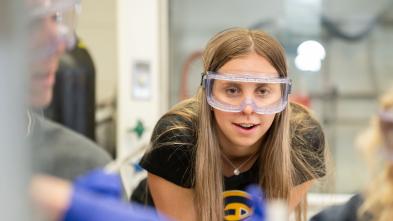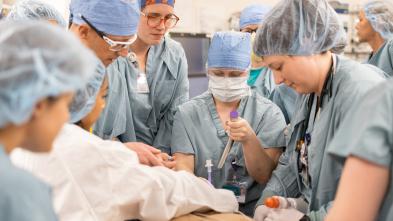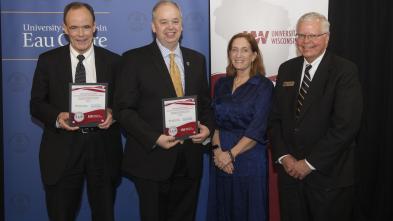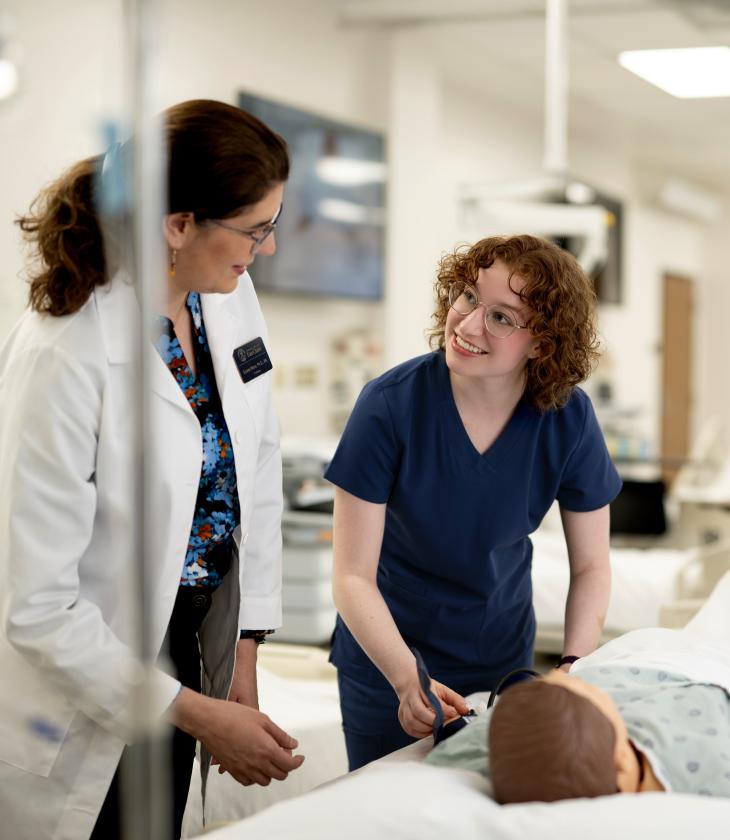

Biomedical Innovator Scholars
Where Ambition Meets Opportunity in Health and Science
If you’re the kind of student who asks big questions, thinks beyond the textbook, and wants to make a real impact on healthcare, the Biomedical Innovator Scholar program is built for you.
This competitive, high-impact program connects motivated students with extraordinary opportunities — from research with leading healthcare partners to cutting-edge campus labs and personalized mentorship that empowers you to chart your own path in medicine, biomedical science, research, or health innovation.
At UW–Eau Claire, you won’t just prepare for the future of healthcare — you’ll help shape it.
Where Ambition Meets Opportunity in Health and Science
If you’re the kind of student who asks big questions, thinks beyond the textbook, and wants to make a real impact on healthcare, the Biomedical Innovator Scholar program is built for you.
This competitive, high-impact program connects motivated students with extraordinary opportunities — from research with leading healthcare partners to cutting-edge campus labs and personalized mentorship that empowers you to chart your own path in medicine, biomedical science, research, or health innovation.
At UW–Eau Claire, you won’t just prepare for the future of healthcare — you’ll help shape it.
JustThe Facts
Why become a Biomedical Innovator Scholar?
Immediate access to research
Most students don’t touch real research until graduate school. Biomedical Innovator Scholars jump in from day one.
You’ll work alongside UW-Eau Claire faculty and professional scientists on projects that matter — medical devices, neuroscience, wearable tech, health systems engineering, genetics, data science, public health, and more.
Mentorship from the best in the field
Your ambitions deserve individualized support. Innovators receive guidance from:
- UW-Eau Claire faculty researchers
- Mayo Clinic Health System and other research partners
- Professional advisors who help you prepare for medical school, graduate school, or your chosen health career
Scholarships and paid research
Innovators receive scholarship support of $8,000 per year ($32,000 total) and gain access to apply for paid summer research opportunities — so you can focus on discovery, not financial barriers.
Exclusive partner-connected experiences
Through UW-Eau Claire’s partnership with renowned healthcare systems, Innovators may participate in advanced experiences like:
- Clinical skills workshops
- Medical simulations
- Job shadowing opportunities
- Special partner-hosted events and networking sessions
You’ll get an insider’s view of healthcare careers long before most students do.
Participating in research has been the foundation of my college experience. I love the "aha" moments of research — not just the moment when success happens but more the moments when something clicks and makes sense. Research has made making connections the most rewarding part of learning.
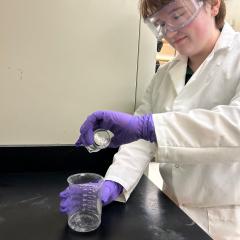
What You’ll Learn and Do
Biomedical Innovator Scholars engage in immersive learning that blends science, creativity, and collaboration. You’ll:
- Design and test solutions to real clinical challenges
- Analyze data using professional-grade computing resources
- Work in state-of-the-art labs and collaborative spaces
- Present research at national conferences
- Build a competitive portfolio for medical school, PA programs, research careers, and more
You’ll graduate not only with knowledge — but with experience, confidence, and a network that opens doors.
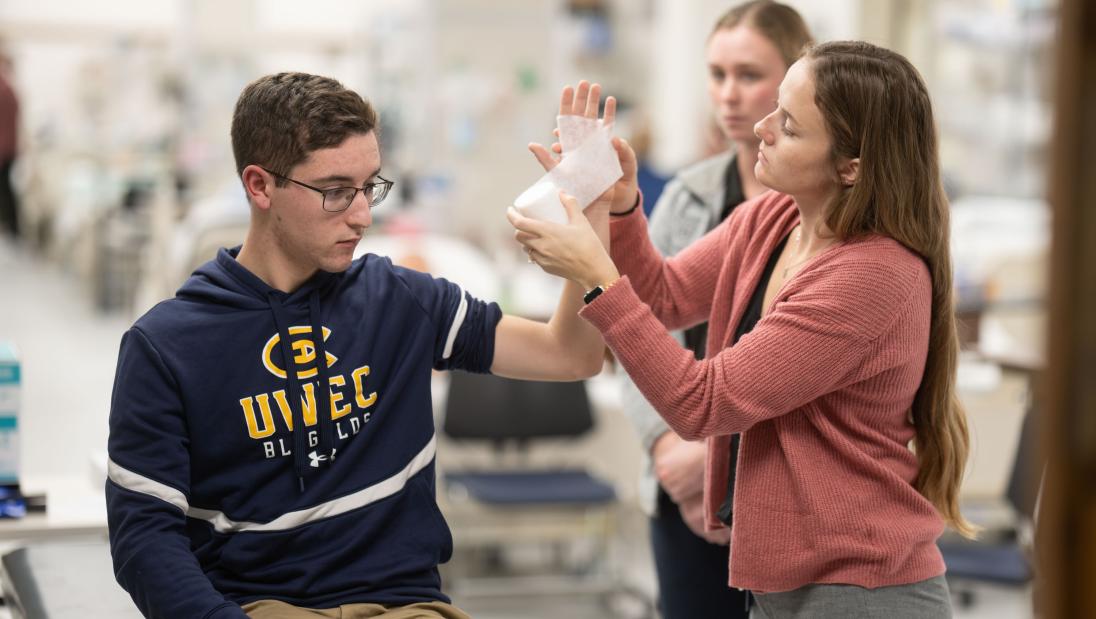
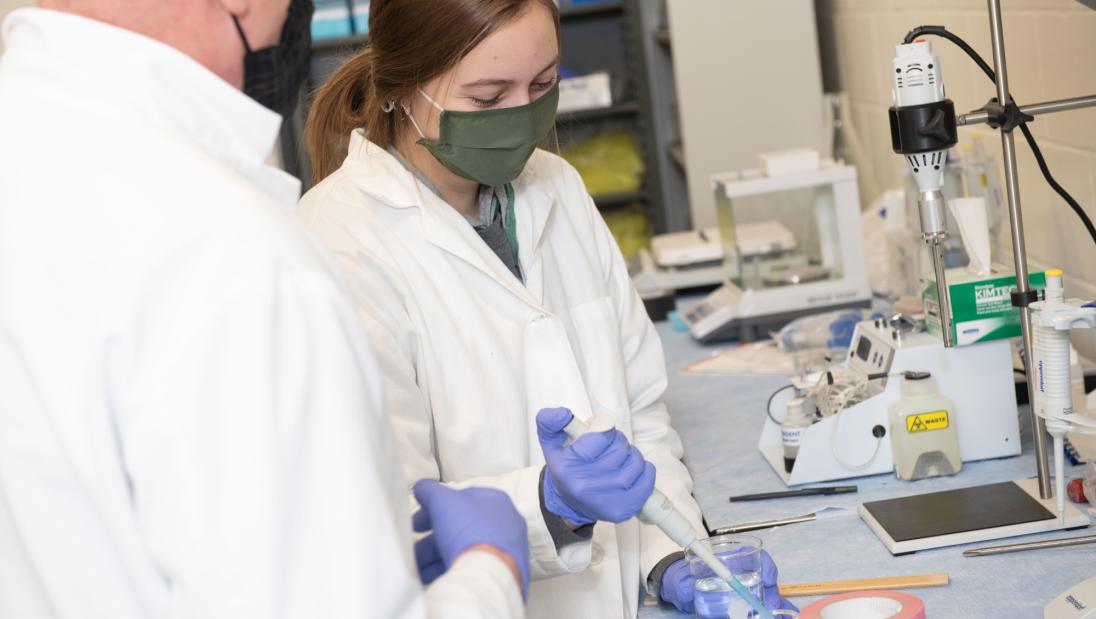
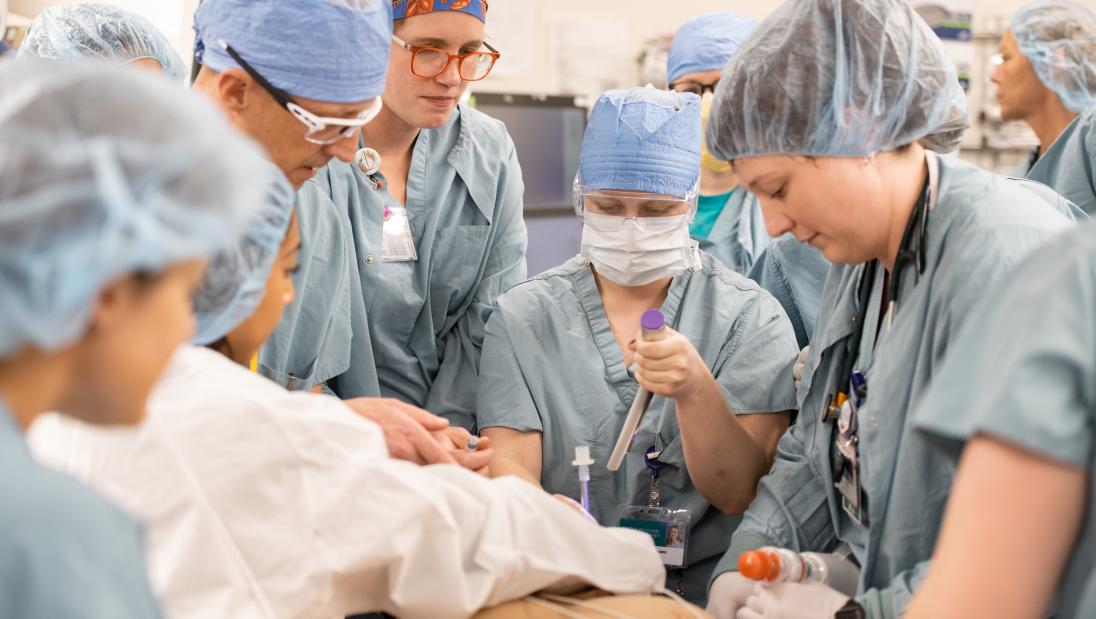
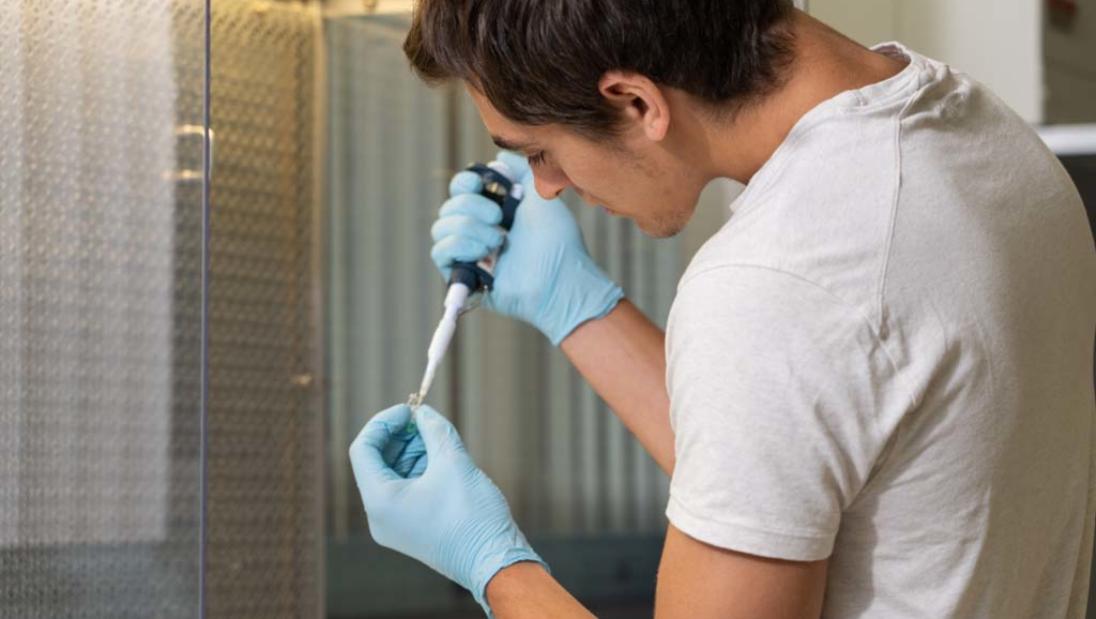
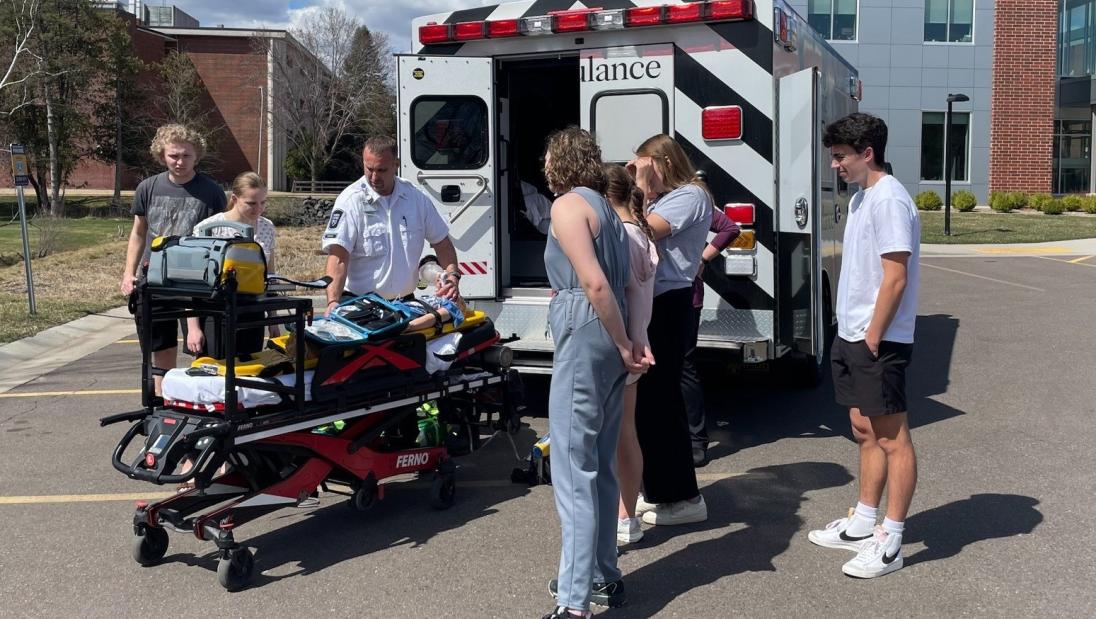
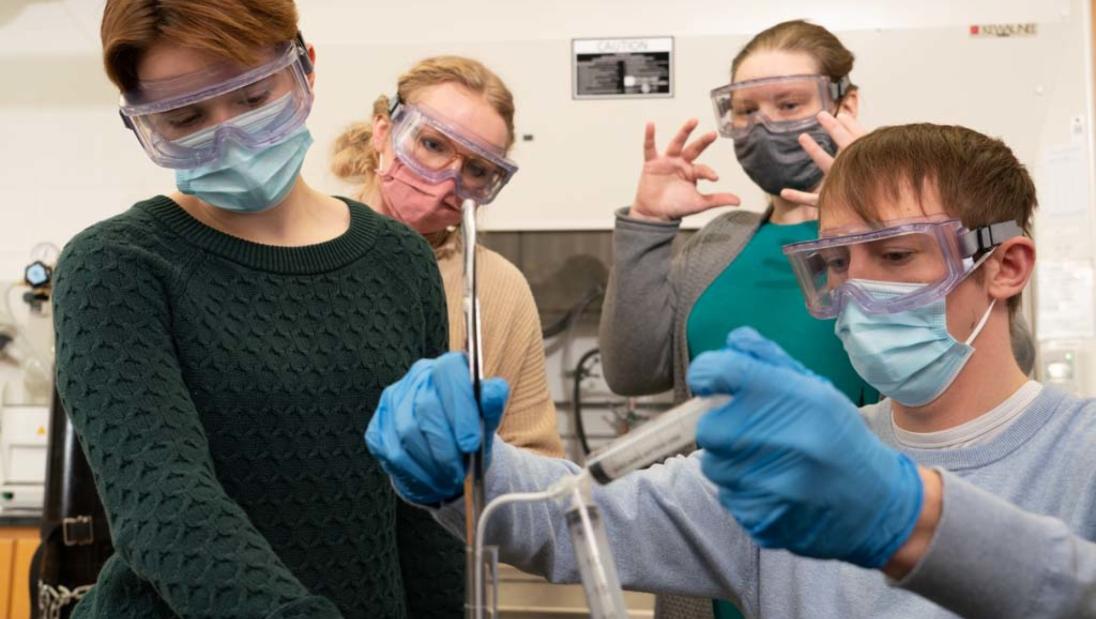
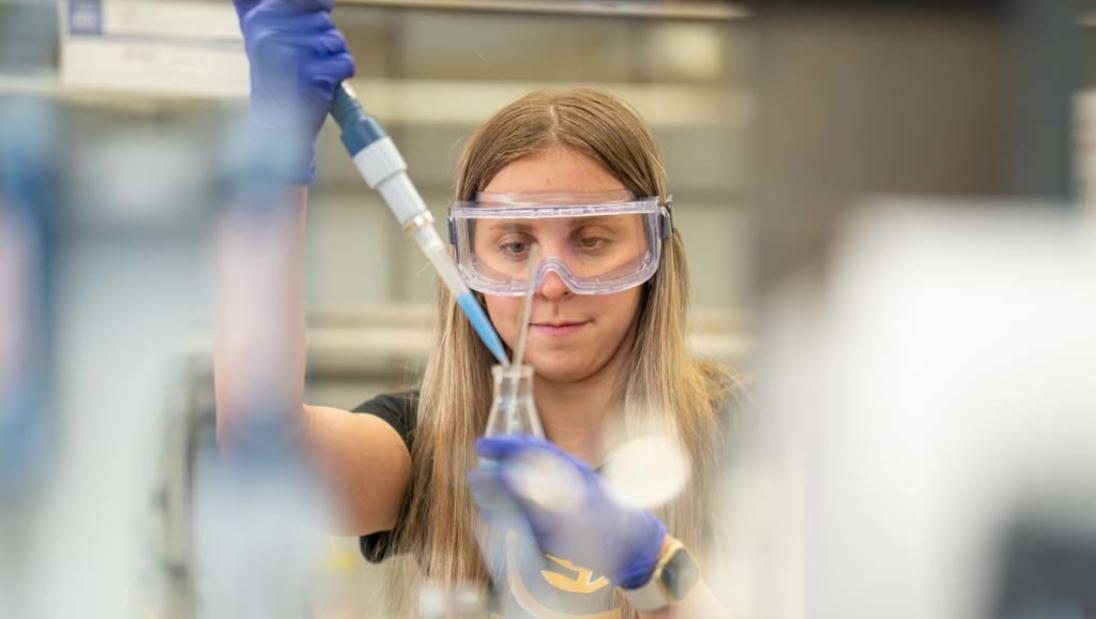
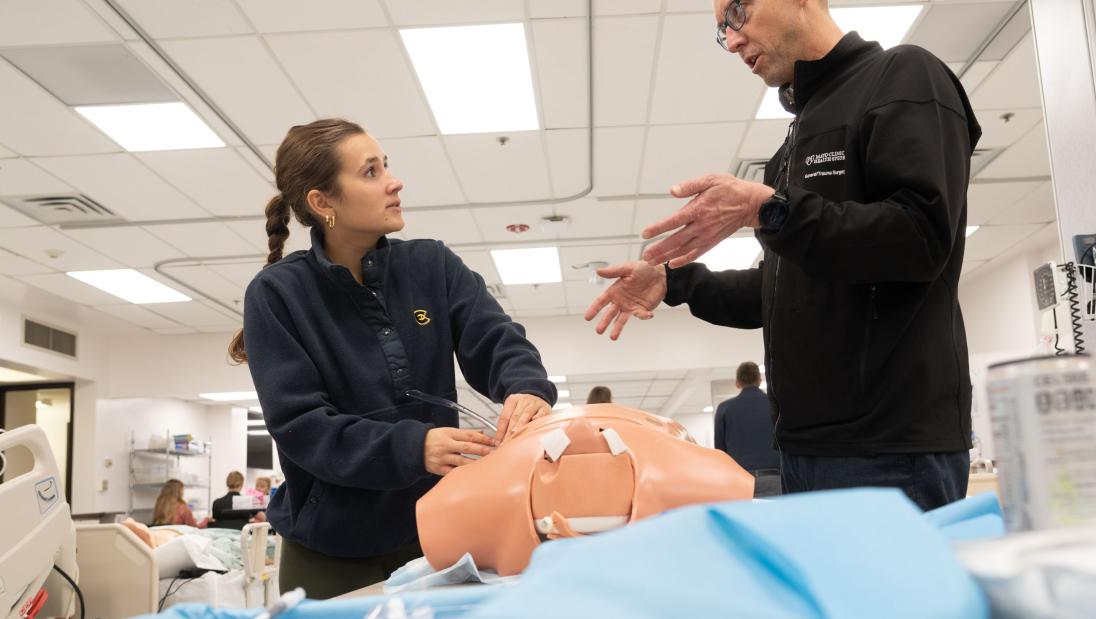

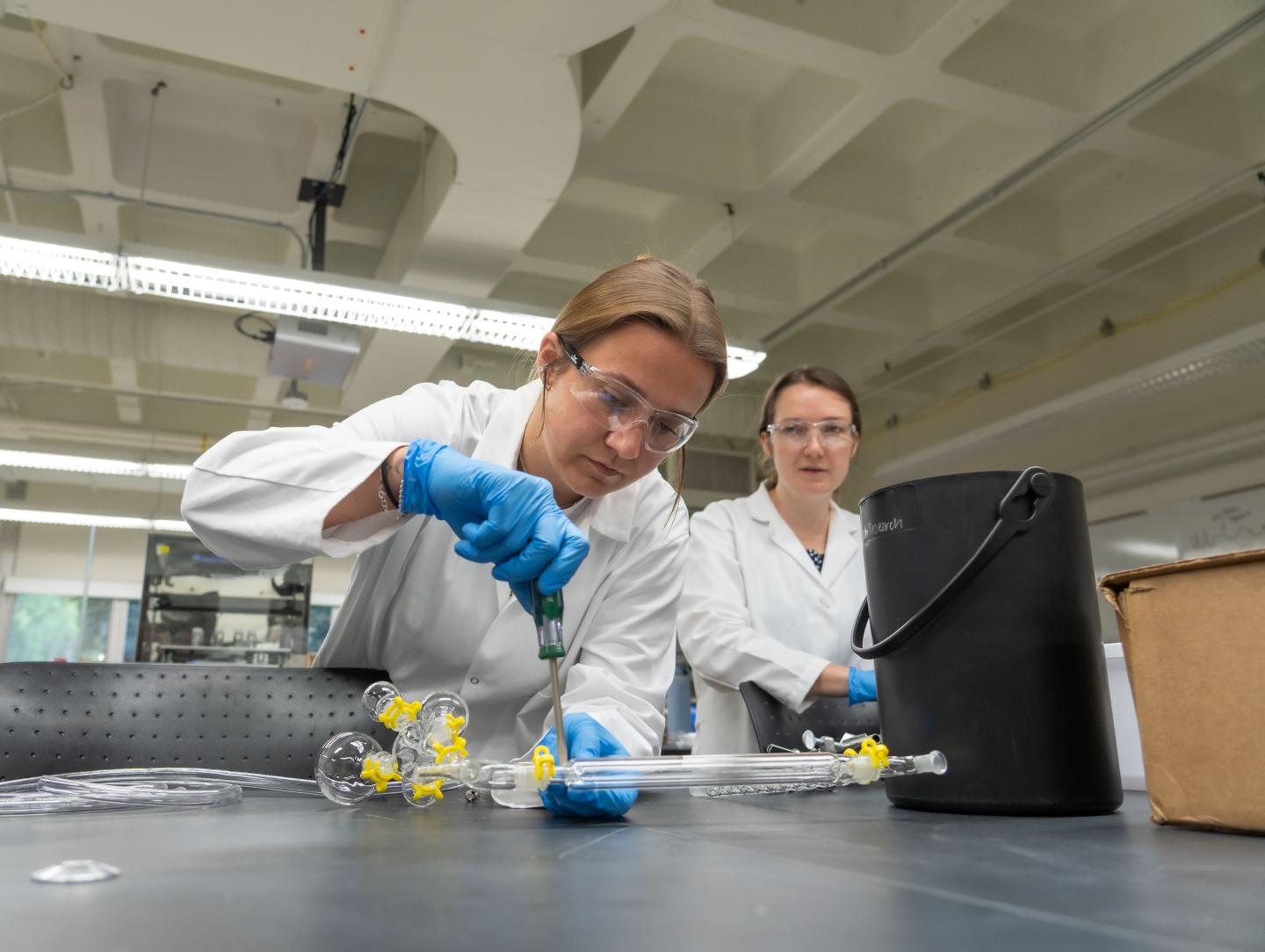
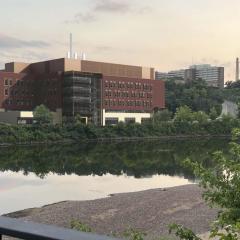
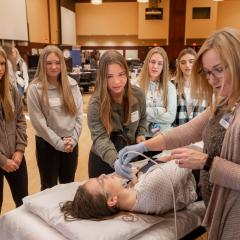
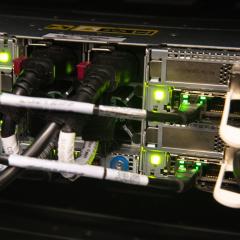
The Biomedical Innovator Scholar program is just one example of how UW-Eau Claire provides innovative research opportunities in almost every field of study for undergraduate students. The research projects below are examples of the remarkable opportunities our Innovator Scholars have (from day one) that are often reserved for graduate students at other institutions.
These exciting projects were made available to our Innovator Scholars.
Research Project Summary
In our lab, students take an active role in studying how changes in DNA can cause genetic diseases. We work with real DNA variants in PCCA and PCCB genes in patients with a metabolic disorder called propionic acidemia. Students use laboratory techniques to test how these DNA changes affect gene activity in cells. As the project develops, students will also learn how to analyze DNA sequence data using modern sequencing technologies and basic bioinformatics tools. Through this work, students gain practical lab and data-analysis experience while contributing to research that can improve patient care.
Faculty Member
Dr. Jamie Lyman Gingerich
Professor — Biology
Research Project Summary
In our lab, students do hands-on research to learn how light controls plant growth. Students grow plants under different light conditions, observe changes in growth and development, and collect real data. They work directly with DNA by identifying genetic changes in plants, building DNA constructs, and measuring how genes are turned on and off. Students also learn how to analyze DNA sequence data and protein experiments. Students learn techniques that are used in biomedical and human genetics research. They gain practical lab and data-analysis skills that prepare them for careers in medicine, health professions, and biological research.
Faculty Member
Dr. Derek Gingerich
Professor — Biology
Research Project Summary
Oxidative stress, resulting from an imbalance in antioxidants and reactive oxygen/nitrogen species in cells, can lead to DNA damage. This is a key factor in the development and progression of cancer. In this project, students help measure DNA damage in cancer patients by testing saliva samples. Students will use a laboratory assay that produces a visible color change to measure a marker of DNA damage called 8-oxo-dG. By running experiments, collecting samples, and analyzing results, students learn how scientists detect disease-related signals in the body. This project gives students practical experience with lab techniques and data analysis while exploring how DNA damage relates to cancer development and patient outcomes.
Dr. Sanchita Hati
Professor — Chemistry
Research Project Summary
In this project, students work with real medical images to learn how artificial intelligence (AI) can improve patient care. We focus on helping physicians find and track IVC filters, small medical devices placed in blood vessels to prevent dangerous clots. These filters are meant to be temporary, but they are sometimes forgotten, which can cause health problems. Our goal is to create a reliable AI algorithm for detecting IVC filters and implement it in hospital settings. We will improve an existing AI program that finds IVC filters in medical images and expand it to spot possible complications. The system will also use AI tools to read electronic health records and gather relevant information about patients. Students will gain experience working with CT scan images, helping label and organize data, and testing AI models to automatically detect IVC filters and possible complications. Students will also learn how computer programs read basic medical records to flag patients who may need follow-up care. Through this work, students learn how AI tools are built, tested, and used in hospitals to improve patient care.
Faculty Member
Dr. Rahul Gomes
Assiociate Professor — Computer Science
Research Project Summary
Pancreatic ductal adenocarcinoma (PDAC) is an aggressive cancer with few effective treatment options. In this project, we use modern technologies to better understand how different cells within a tumor behave and respond to treatment. Students will work with cancer imaging data and gene expression data generated by techniques such as single-cell RNA sequencing and spatial transcriptomics. Using AI and image analysis tools, students will help identify biological markers linked to tumor growth and patient outcomes. Through this work, students learn how large, complex datasets are analyzed and how these approaches can support more personalized cancer treatment strategies.
Faculty Member
Dr. Rahul Gomes
Associate Professor — Computer Science
Research Project Summary
Our lab uses 3D printing to improve patient care by creating models of patient anatomy from CT or MRI scans. These models help surgeons plan and practice complex procedures, teach patients about their surgeries, and develop custom surgical guides. Students participate at multiple stages of the project; processing medical imaging data, designing anatomical models using 3D modeling software, and producing physical 3D prints. Current projects include creating surgical practice models for procedures such as the Watchman procedure for atrial fibrillation and abdominal aortic aneurysm repair. Students learn how 3D printing can be integrated with clinical practice, and they gain skills directly relevant to biomedical research, medical training, and improving patient outcomes.
Faculty Member
Dr. Doug Dunham
Director — Materials Science and Engineering Center
Research Project Summary
Tumor ablation is a minimally invasive procedure used to treat cancers of the lung, kidney, and liver, but it can damage healthy tissue if it is too close to the treatment area. Our lab is developing and testing injectable foams that physically separate and insulate healthy tissue from cancerous tissue during ablation, reducing damage to the surrounding tissues. Students in the lab help prepare and test the foams, design and run experiments, collect and analyze data, and troubleshoot problems. In addition to technical skills, students gain experience in critical thinking, problem-solving, teamwork, and communicating results to different audiences.
Faculty Member
Dr. Liz Glogowski
Professor — Materials Science and Biomedical Engineering
Research Project
Pain management is a multi-billion-dollar industry, but delivering localized relief that is consistent, sustained, and conforms to the body can be challenging. In this project, students will design and build a prototype of a mechanically flexible, electrically powered cooling pad to help patients manage pain after surgery or injury. This project integrates patient care considerations with practical engineering skills to design an optimal cooling pad, giving students the opportunity to take the project from initial design all the way to a completed prototype.
Dr. Joseph Petefish
Assistant Professor — Materials Science and Biomedical Engineering
Research Project Summary
Antibiotic resistance is a growing public health concern, especially for sexually transmitted infections (STIs). Our lab is developing a self-expanding intravaginal ring (IVR) for localized drug delivery. The device is made from poly(lactic acid) (PLA), a biodegradable polymer, and is designed to expand for minimally invasive insertion while releasing embedded antimicrobials as the PLA gradually degrades. Students in the lab participate in all stages of the project, gaining hands-on experience in polymer synthesis, fabrication of the IVR, characterization of biomaterials, hydrolytic degradation studies, and antibiotic susceptibility testing. Through this work, students develop practical biomedical engineering skills and contribute to research that addresses an important health problem.
Faculty Member
Dr. Michaela Pfau-Cloud
Assistant Professor — Materials Science and Biomedical Engineering
Research Project Summary
Our lab studies how genetic and environmental factors influence brain development and contribute to neurodevelopmental disorders. In this project, students explore autism spectrum disorders (ASD) by investigating connections between two factors that are independently associated with ASD; cortisol signaling through prenatal stress and inhibitory neuron development. Students work directly with zebrafish, a model organism for studying neurodevelopment. They gain hands-on experience in microscopy to observe physical development, molecular biology techniques to measure gene expression, and behavioral analysis using motor tracking experiments. Students get experience developing practical laboratory skills and insights into the biological mechanisms that underlie neurodevelopmental disorders.
Faculty Member
Dr. Brad Carter
Associate Professor — Biology
Research Project Summary
Our lab investigates how alcohol and cannabis use impact brain function and cognition in aging populations. Older adults increasingly use alcohol and cannabis, but the combined effects of these substances on the aging brain are not well understood. This project uses aged animal models to study how exposure to alcohol, cannabis (delta-9-THC), or both, affects cognitive abilities and underlying brain changes. Students in the lab gain hands-on experience in experimental design, behavioral testing, and data collection. This research provides students with practical laboratory skills and an understanding of the biological and behavioral consequences of substance use in older adults.
Faculty Member
Dr. Doug Matthews
Professor — Psychology
Research Project Summary
Our lab studies two of the leading preventable causes of illness and early death in the U.S., obesity and drug use. We have collaborated with Mayo Clinic professionals to design and evaluate interventions aimed at reducing post-operative opioid use. We have also developed and refined behavioral and pharmacological models of hunger, motivation, reward, and sex differences to better understand factors underlying drug use and obesity. Students gain experience with designing and running experiments, collecting behavioral and physiological data, and analyzing results. Our laboratory is composed of a diverse group of students with a wide range of academic interests and experiences, and we have a long history of success in training students for graduate and professional school and careers in health science.
Faculty Member
Dr. David Jewett
Professor — Psychology
These are experiences they wouldn’t be getting at a Big 10 or Ivy League school. They are first-year students working on research on campus, but they also are working with researchers at Mayo Clinic. It’s been tremendous for them and for us.
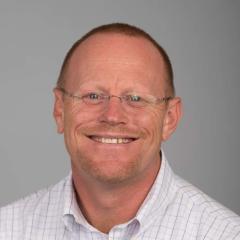
Take The Next StepToward Your Medical Future
